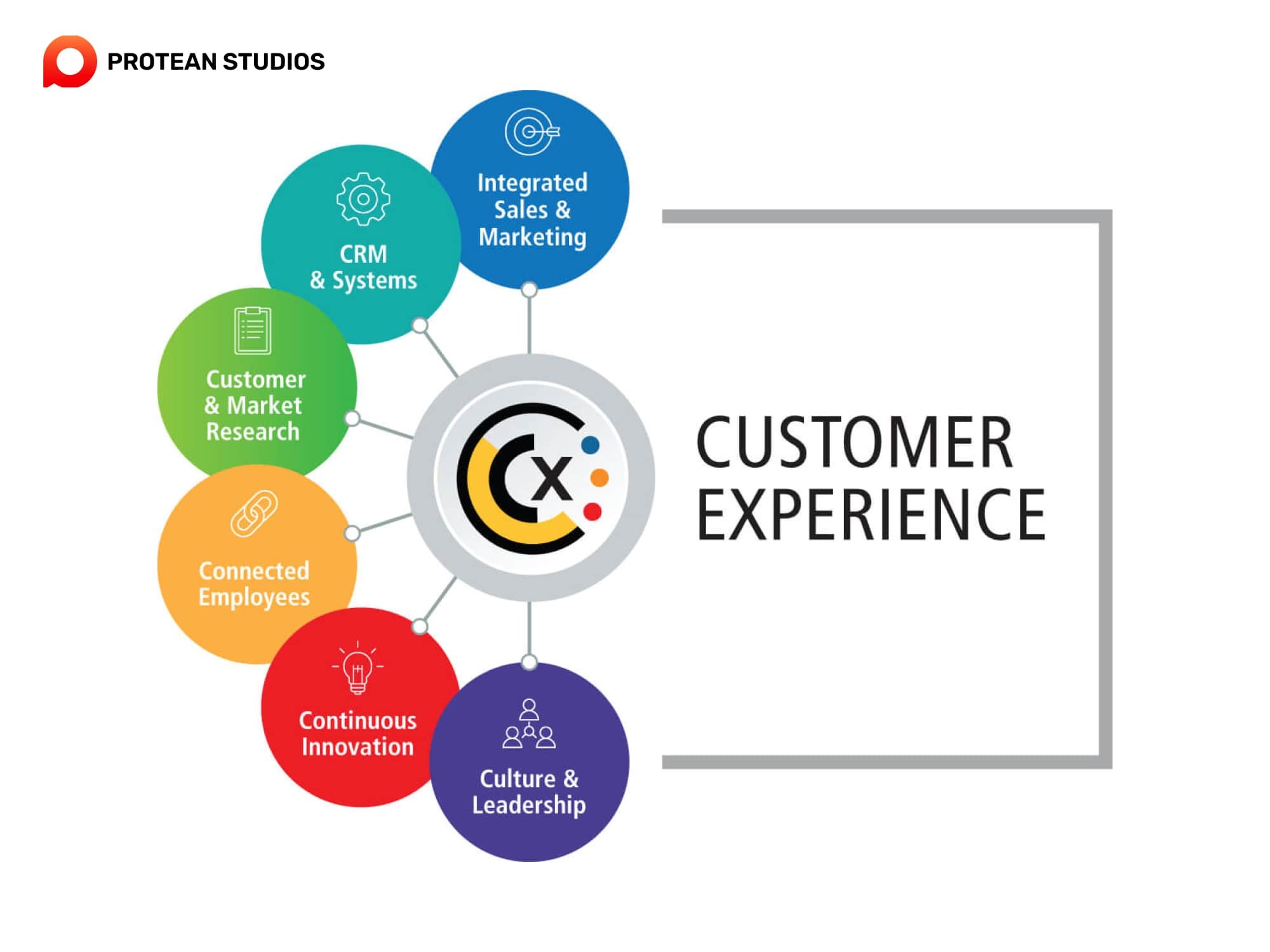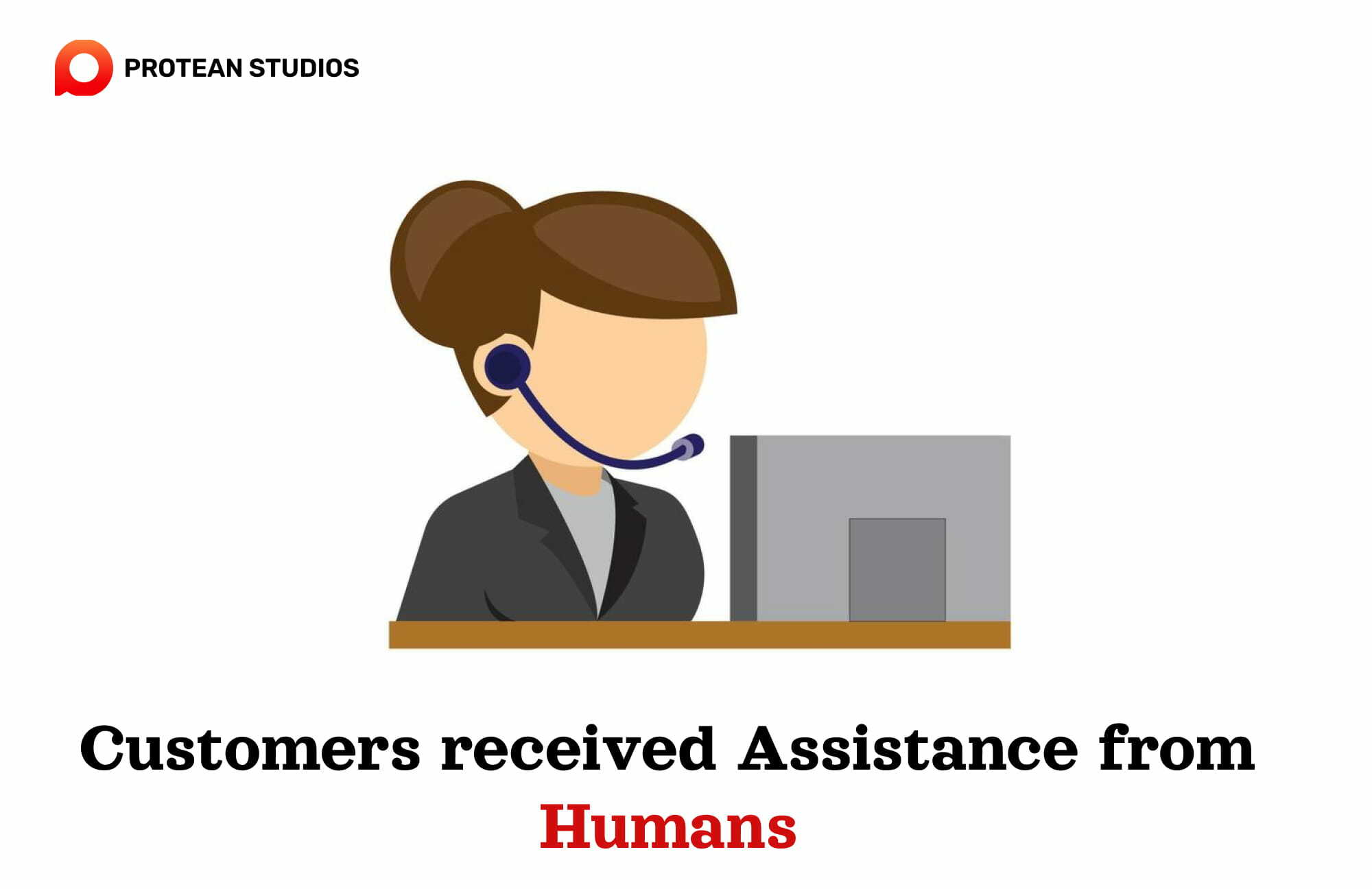It is not denied that 2024 will be the year of the AI explosion because they appear everywhere and are transforming how businesses interact with customers. This increases the suspicion of customers about business companies. While artificial intelligence offers undeniable benefits, customers are concerned about data privacy and the potential for AI bias.
This guide will equip you with the knowledge to build trust with your customers throughout their AI-powered interactions. We'll explore how transparency, data privacy practices, maintaining a human element, and clear communication can pave the way for a successful and trustworthy AI integration strategy.
What are the customer's perceptions when encountering AI in your business, and what do they think?
As you integrate artificial intelligence into your business, understanding how customers perceive these interactions is crucial. Here's a breakdown of what might be going through customers' minds when encountering AI, and then we will suggest some solutions that can be useful for you.
#1: "Is this company concerned about my needs?"
Customers need recognition and personalization; they don't want to feel like a mere number in a series of transactions. They have to face a complex automated customer service system without a resolution, which can be exasperating and make customers feel disregarded by the company.

Providing a high-quality product or service is essential, but the customer experience is also very important. Whether the customer is new or returning, one bad experience can ruin months or years of building customer relationships.
Other Article: Using Chatbots To Boost Social Media Marketing
Strategies for success
When implementing AI, it's crucial to do so. Focus on utility over mere efficiency. Aim to meet customer needs before they arise and engage in proactive outreach. Demonstrating that you value their time and patronage by going above and beyond can make a significant difference.
Adopting fair practices, policies centered around customer needs, and supporting ethical causes can reflect a company's good intentions. Yet, it's important to ensure that every interaction and piece of content a customer encounters contributes to a positive experience.
#2: "Is this content genuine or AI-generated filler?"
We're all becoming wary readers these days. Customers will wonder: did the author write this, or did AI do it? Is it "AI helped me organize my thoughts" or "ChatGPT did all the thinking for me"?
Seeking assistance from artificial intelligence in writing isn't the issue. The real problem arises when business leaders churn out posts lacking the originality or unique perspective necessary to offer valuable content. Whether it's a blog or a LinkedIn update, it's essential to respect your audience by delivering something worthwhile to read.
Read more: ChatGPT: The Useful Tool You Need To Know
How do I get it right?
Compelling content should reflect your own ideas and viewpoint. While using generative AI like ChatGPT for tasks such as crafting social media posts can be helpful, it's crucial to remember that AI won't prompt you to think (and when it does, it often sounds generic, unoriginal, and beginner-level).
For CEOs and other business figures, it's even more critical to share timely reactions to current events or industry news. Then, demonstrating genuine engagement and insights that AI struggles to replicate,.
#3: "Can I trust this company to keep my data secure?"
Because AI systems often need access to personal data to function, data security becomes a paramount concern for customers. Thus, companies must be transparent about their data usage policies and take robust security measures to protect customer information. Thereby reinforcing trust and confidence in their AI systems.

To know the reason why customers focus on data security, you can see the blog: The Rise Of Zero-Party Data And First-Party Data
How to do it right:
With public breaches and controversies on the rise and the growing dependence on customer data for AI and automation, safeguarding this data is of utmost importance. This entails adopting robust cybersecurity protocols for sensitive data, adhering to regulations like GDPR, and communicating these measures to customers.
For instance, a B2B SaaS company utilizing AI for personalized marketing should detail the encryption, storage, and processing methods of customer data, along with the steps taken to follow data privacy regulations.
#4: “Is my assistance coming from a human?"
The human touch remains a critical component of customer service. While AI can handle routine inquiries, customers may still seek human interaction for complex issues. You should offer clear options for customers to connect with human representatives. Ensuring that AI serves as a complement to human service rather than a replacement.
Tips for doing it right
The first impression a customer has of your business can make all the difference. When it comes to AI interactions, transparency is key. Here's how to ensure your AI is building trust, not confusion:
Transparency goes beyond disclosure. It's not enough to say that you use AI. Explain how these technologies benefit your customers.
Demystify the decision-making process. If AI is influencing customer outcomes, provide details. For example, if an AI recommends a financial product, explain the data used, the factors considered, and how the AI learns.
Empower trust, not fear. By shedding light on how AI operates, you allow customers to understand the logic behind decisions. This builds trust and replaces apprehension with informed confidence.
#5: "Is there a way for me to reach out to a real individual for further assistance?"
Accessibility to human assistance is essential. You should provide easy-to-navigate channels for customers to reach out to human support when needed. This could include chat options that transition from AI to human support, direct phone lines, or in-person service centers, depending on the nature of the business.
Small tips:
AI-driven chatbots offer rapid responses and self-service features, yet they should transition to human assistance for complex issues. When it comes to product and service operations, even if AI handles routine tasks such as data processing, human oversight needs to appear for decision-making.

Some hints for building and maintaining customers’s trust
Building and maintaining customer trust is a cornerstone of successful business relationships. Trust is the foundation upon which customer loyalty is built and is essential for fostering a positive reputation and encouraging long-term engagement. Here are some key strategies to help you build and maintain your customers' trust:
Provide Personalized Experiences: Tailoring your services to meet individual customer needs shows that you value their business and understand their unique preferences.
Exceptional Customer Service: Always be ready to assist your customers with a smile. Whether it's through timely responses to inquiries, resolving issues, or going the extra mile to meet their needs, exceptional service makes customers feel valued and cared for.
Honesty and Transparency: Be clear about your business practices and policies. If mistakes happen, admit them and take steps to rectify the situation. Customers appreciate honesty and are more likely to remain loyal if they believe a company is forthright and principled.
Focus on Customer Feedback: Seek out and listen to your customers' feedback. This not only helps in improving your products and services but also shows customers that their opinions are important and can influence change.
Share Customer Reviews and Testimonials: Positive reviews and testimonials are powerful in building trust with potential customers. They serve as social proof that your products and services are reliable and valued by others.
Building trust in an AI-powered world requires transparency, honesty, and a focus on customer value. This guide equips you to navigate AI interactions. Remember, AI should enhance, not replace, human connections. Focus on oversight, address concerns, and embrace continuous learning to leverage artificial intelligence and cultivate lasting trust.




